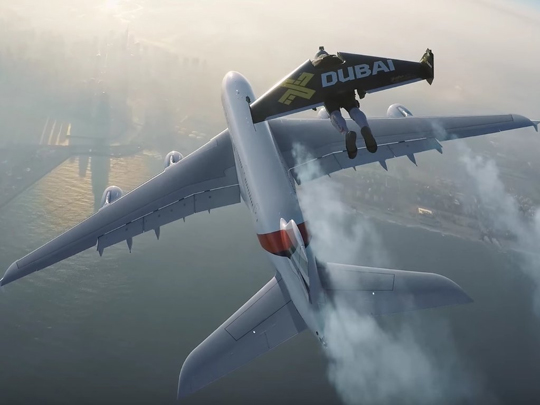Ramallah, May 19: India has given USD 2 million in aid to the United Nations Relief and Works Agency working for the welfare of Palestinian refugees in support of its core programmes and services, including education and health, amidst the coronavirus crisis.
India had increased its annual contribution to the UNRWA from USD 1.25 million in 2016 to USD 5 million in 2019. It pledged another USD 5 million for 2020 which opens its way to become a member of the agency's advisory commission, according to official sources.
The United Nations Relief and Works Agency (UNRWA) applauded India's financial support to keep its basic services operating, especially under the challenges posed by the COVID-19 pandemic.
The contribution was presented to the UN agency by the Representative of India (ROI) to the State of Palestine, Sunil Kumar.
"On behalf of the agency, I would like to express my deep appreciation to the Government of India for advancing part of its contribution, which will help UNRWA address cash flow challenges," Marc Lassouaoui, chief of the Donor Relations at the agency said.
"The continued determination and commitment of India in support of the Palestine refugees is commendable, in particular under the current circumstances brought on us by COVID-19," he said.
"On behalf of the Government of India, I would like to express my appreciation for the commendable work and endeavours carried out by the UNRWA. We believe that our contribution will support the agency's activities in providing the needed assistance to Palestinian refugees, and assist in achieving their full human development potential," Kumar said.
India's contribution will support the agency's "dire" financial situation due to the funding gaps that risk its core services to the Palestinian refugees in the fields of education and health.
About 3.1 million Palestine refugees depend on health services provided by the UNRWA. At the same time, the agency's schools educate 526,000 students every year, of which half are female.
The agency was created in December 1949 by the UN to support the relief and human development of Palestinian refugees.
The UNRWA definition of “refugee” covers Palestinians who fled or were expelled from their homes during the 1948 War.
Meanwhile, India is preparing medical supplies for the Palestinians to help them in their fight against the coronavirus which is likely to reach the Palestine soon, the Indian mission in the West Bank said in a statement.
Prime Minister Narendra Modi last month spoke to Palestinian President Mahmoud Abbas over phone and discussed the challenges posed by the COVID-19 pandemic. He appreciated efforts being made by the Palestinian Authority (PA) to protect its population and assured all possible support from India.
External Affairs Minister S Jaishankar later talked to his Palestinian counterpart Riad Malki and reiterated India's commitment to support Palestine in its battle against the global pandemic.
So far, 554 COVID-19 cases have been detected in the West Bank under PA and east Jerusalem, with two casualties.
Twenty people were found infected with the virus in Gaza, of which 14 are said to have recovered.
Separately, 17 agreements have been signed under an India-Palestine development partnership between the two sides in the fields of agriculture, health care, information technology, youth affairs, consular affairs, women empowerment and media in the past five years.
New Delhi is to provide an assistance of around USD 72 million through these agreements in projects like the post-2014 war reconstruction efforts in Gaza, construction of five schools, setting up a centre of excellence for information and communication technologies at Al-Quds University and developing a satellite centre in Ramallah.






Comments
It's actually a cool and useful piece of info. I am glad
that you shared this helpful info with us. Please stay us informed like this.
Thanks for sharing.
My homepage :: best digital baby
grand piano: http://www.120qiaoxing.com/comment/html/index.php?page=1&id=202
I do not even know how I stopped up here, but I assumed this post used to be great.
I do not realize who you are however definitely you are going
to a well-known blogger for those who aren't already.
Cheers!
Here is my page :: best entry level digital piano: http://owencollier.com/index.php/component/k2/itemlist/user/1120707
Hi! This post couldn't be written any better! Reading this
post reminds me of my old room mate! He always kept talking about this.
I will forward this write-up to him. Fairly certain he will have a good read.
Thanks for sharing!
Look at my website - Yamaha digital pianos
reviews: http://empresasmondejar.com/?option=com_k2&view=itemlist&task=user&id=7…
This is really attention-grabbing, You are a very
skilled blogger. I have joined your feed and sit up for in the hunt for
extra of your fantastic post. Additionally, I've shared your site in my social networks
Check out my site: best digital
piano Weighted keys: http://jiaozhanji.net/comment/html/index.php?page=1&id=18177
Hi to every body, it's my first go to see of
this web site; this web site contains remarkable and truly excellent material designed for readers.
Visit my web blog ... which keyboard: http://hldtxx.gznsjy.net/comment/html/index.php?page=1&id=11860
It's very straightforward to find out any topic on web as compared to
textbooks, as I found this article at this web page.
Here is my web site: what is digital piano (Larae: http://www.diluya.cn/comment/html/index.php?page=1&id=89918)
Hello to every body, it's my first go to see of this web site; this weblog contains amazing
and actually good material designed for visitors.
my homepage: digital piano reviews 2014: http://www.ys12345.com/comment/html/index.php?page=1&id=34993
Add new comment